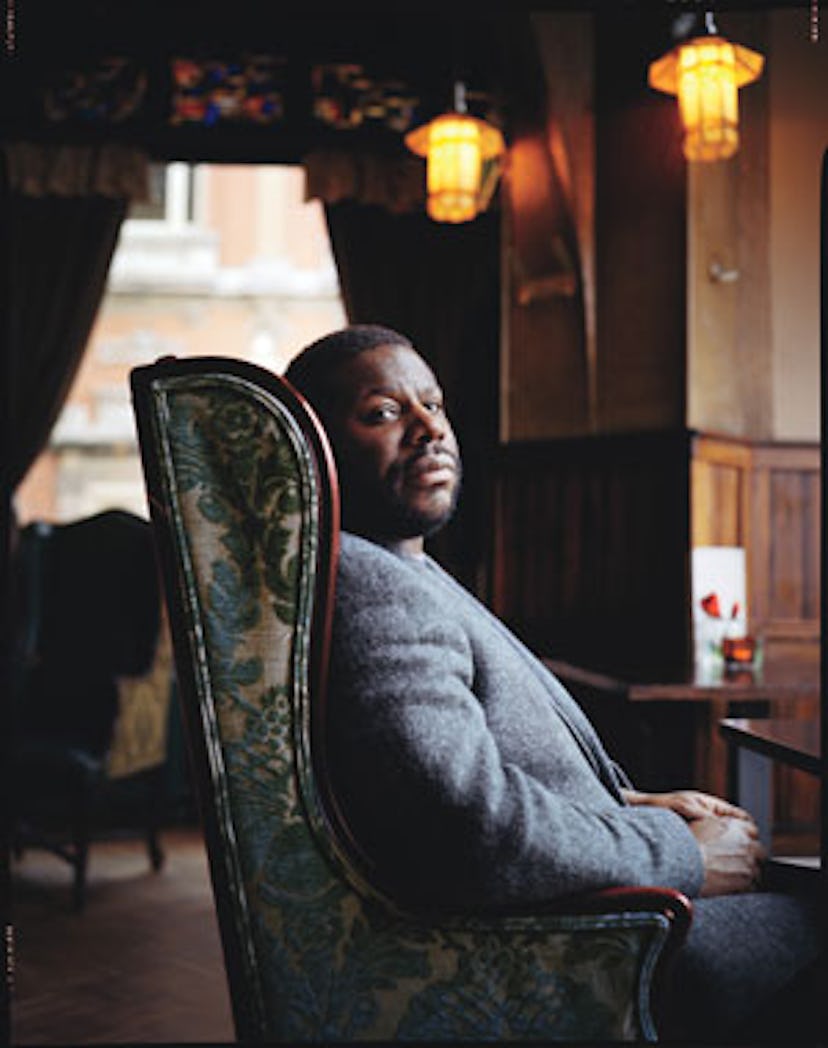The New Guard: Steve McQueen
The uncompromising director Steve McQueen brings serious art house films back to the big screen.

If he were at all comfortable talking about what he does, Steve McQueen would have plenty to brag about. The 42-year-old British artist-turned-director won the Turner Prize in 1999 and went to Iraq as an official U.K. war artist in 2003. He’s represented his country at the Venice Biennale, been granted the title of Commander of the British Empire, and his work is in museum collections all over the world. In 2008, when McQueen started directing for the big screen with Hunger, and then with 2011’s Shame, he gathered up fawning critics and film-festival awards in the palm of his meaty hand. Still, despite endless wins and nominations, despite having just signed Brad Pitt to his next film, despite two new solo exhibitions (at the Art Institute of Chicago and the Schaulager, in Basel, Switzerland), McQueen is not exactly luxuriating in his moment. “I’m never satisfied with what I do,” he says. “And I hope that shows up in my work.”
It does. McQueen’s films, photographs, and sculptures are challenging—in his video “Caribs’ Leap,” the men falling through the sky allude to the mass suicides in 17th-century Grenada, and his installation Queen and Country, of postage-stamp portraits memorializing Britain’s Iraq-war fatalities, toured the U.K. and drove home the war’s devastation.
His two feature films, Hunger and Shame, both explore situations of captivity through brutally carnal performances and uncomfortable camerawork. In Hunger, about the IRA hunger strike protests, Bobby Sands (Michael Fassbender) and his fellow prisoners have nothing left to protest with but their own bodies. “Sands transcended prison by not eating,” McQueen explains. “And Brandon [Fassbender’s sex-addicted character in Shame] puts himself into a kind of prison by engaging in repeated sexual acts.” They’re raw films, but there is a dignity given to the characters that makes one believe McQueen when he says, “I like people”—despite how much he tortures them onscreen.
Now a little more light is creeping into McQueen’s work. His upcoming film, Twelve Years a Slave, the true story of a free black man sold into and then released from slavery, may even have an “up” ending. (Fassbender joins Brad Pitt and Chiwetel Ejiofor in it.) For Blues Before Sunrise, a recent installation in Amsterdam’s Vondelpark with the Stedelijk Museum, McQueen replaced all the standard lightbulbs with blue ones for three weeks. “Whatever happens in the park is part of the piece. You don’t have to try; you just have to be.”
Freedom is still on McQueen’s mind—he moved to Amsterdam with his partner and their two children to find some peace and quiet. “I always wished there was an adult playground where you could use the swings,” he says. “I cheat when I’m with my daughter: I squeeze my bottom into a swing, and swing and swing. It’s fucking brilliant.”